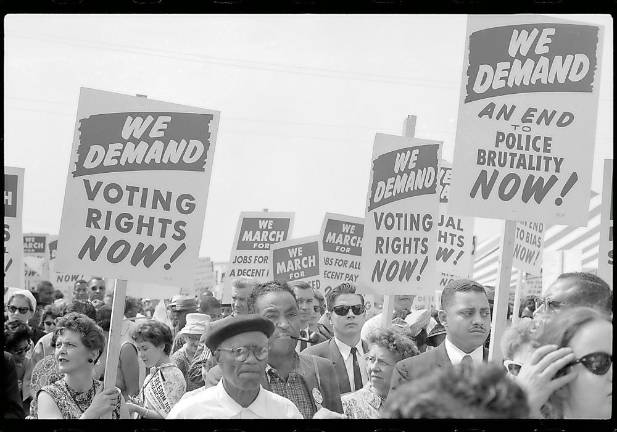
Editor’s note: The American Association of University Professors, the American Historical Association, the Association of American Colleges & Universities and PEN America have authored a joint statement stating their “firm opposition” to legislation, introduced in at least 20 states, that would restrict the discussion of “divisive concepts” in public education institutions.
We, the undersigned associations and organizations, state our firm opposition to a spate of legislative proposals being introduced across the country that target academic lessons, presentations, and discussions of racism and related issues in American history in schools, colleges and universities. These efforts have taken varied shape in at least 20 states; but often the legislation aims to prohibit or impede the teaching and education of students concerning what are termed “divisive concepts.” These divisive concepts as defined in numerous bills are a litany of vague and indefinite buzzwords and phrases including, for example, “that any individual should feel or be made to feel discomfort, guilt, anguish, or any other form of psychological or emotional distress on account of that individual’s race or sex.” These legislative efforts are deeply troubling for numerous reasons.
‘The ideal of informed citizenship necessitates an educated public’
First, these bills risk infringing on the right of faculty to teach and of students to learn. The clear goal of these efforts is to suppress teaching and learning about the role of racism in the history of the United States. Purportedly, any examination of racism in this country’s classrooms might cause some students “discomfort” because it is an uncomfortable and complicated subject. But the ideal of informed citizenship necessitates an educated public. Educators must provide an accurate view of the past in order to better prepare students for community participation and robust civic engagement. Suppressing or watering down discussion of “divisive concepts” in educational institutions deprives students of opportunities to discuss and foster solutions to social division and injustice. Legislation cannot erase “concepts” or history; it can, however, diminish educators’ ability to help students address facts in an honest and open environment capable of nourishing intellectual exploration. Educators owe students a clear-eyed, nuanced, and frank delivery of history, so that they can learn, grow, and confront the issues of the day, not hew to some state-ordered ideology.
‘An inappropriate attempt to transfer responsibility for the evaluation of a curriculum ... from educators to elected officials’
Second, these legislative efforts seek to substitute political mandates for the considered judgment of professional educators, hindering students’ ability to learn and engage in critical thinking across differences and disagreements. These regulations constitute an inappropriate attempt to transfer responsibility for the evaluation of a curriculum and subject matter from educators to elected officials. The purpose of education is to serve the common good by promoting open inquiry and advancing human knowledge. Politicians in a democratic society should not manipulate public school curricula to advance partisan or ideological aims. In higher education, under principles of academic freedom that have been widely endorsed, professors are entitled to freedom in the classroom in discussing their subject. Educators, not politicians, should make decisions about teaching and learning.
‘A white-washed view of history cannot change what happened’
Knowledge of the past exists to serve the needs of the living. In the current context, this includes an honest reckoning with all aspects of that past. Americans of all ages deserve nothing less than a free and open exchange about history and the forces that shape our world today, an exchange that should take place inside the classroom as well as in the public realm generally. To ban the tools that enable those discussions is to deprive us all of the tools necessary for citizenship in the twenty-first century. A white-washed view of history cannot change what happened in the past. A free and open society depends on the unrestricted pursuit and dissemination of knowledge.
American Association of University Professors
American Historical Association
Association of American Colleges & Universities
PEN America
The following organizations are among those that have co-signed this statement:
Agricultural History Society
Alcohol and Drugs History Society
American Federation of Teachers, AFL-CIO
American Folklore Society
American Library Association
American Society for Environmental History
Anti-Defamation League
Association for Ancient Historians
Association for Asian American Studies
Association for Documentary Editing
Association for Spanish and Portuguese Historical Studies
Association for the Study of Higher Education
Business History Conference
Chinese Historians in the United States
Coalition of Urban & Metropolitan Universities (CUMU)
Committee on Lesbian, Gay, Bisexual, & Transgender History
Conference on Asian History
Conference on Faith and History
Freedom to Read Foundation
Hispanic Association of Colleges and Universities
Immigration Ethnic History Society
Labor and Working-Class History Association
Middle East Studies Association
National Women’s Studies Association
Roy Rosenzweig Center for History and New Media
Shakespeare Association of America
Society for the Study of Early Modern Women and Gender
Society of Civil War Historians
Southern Historical Association
Urban History Association
Western History Association